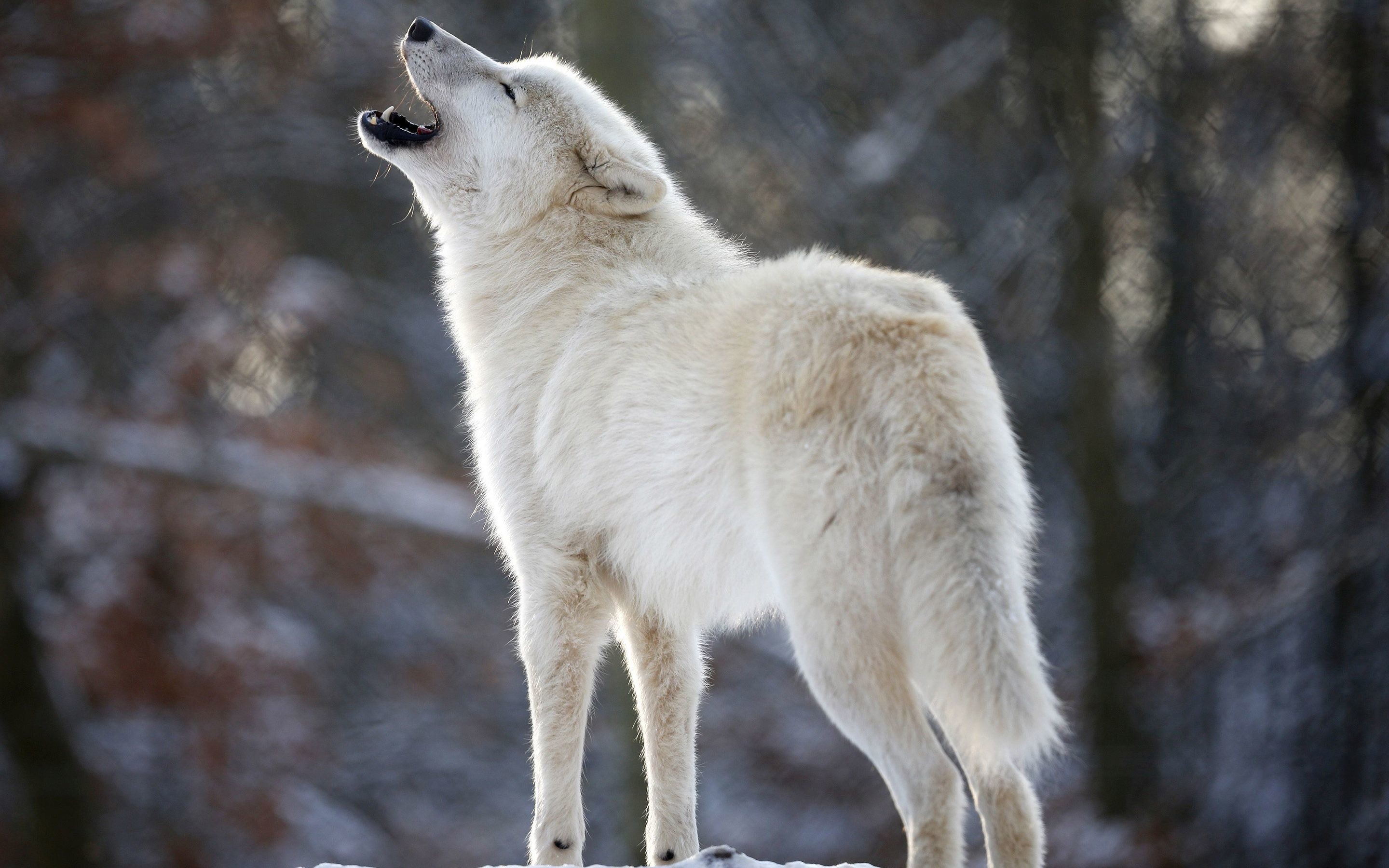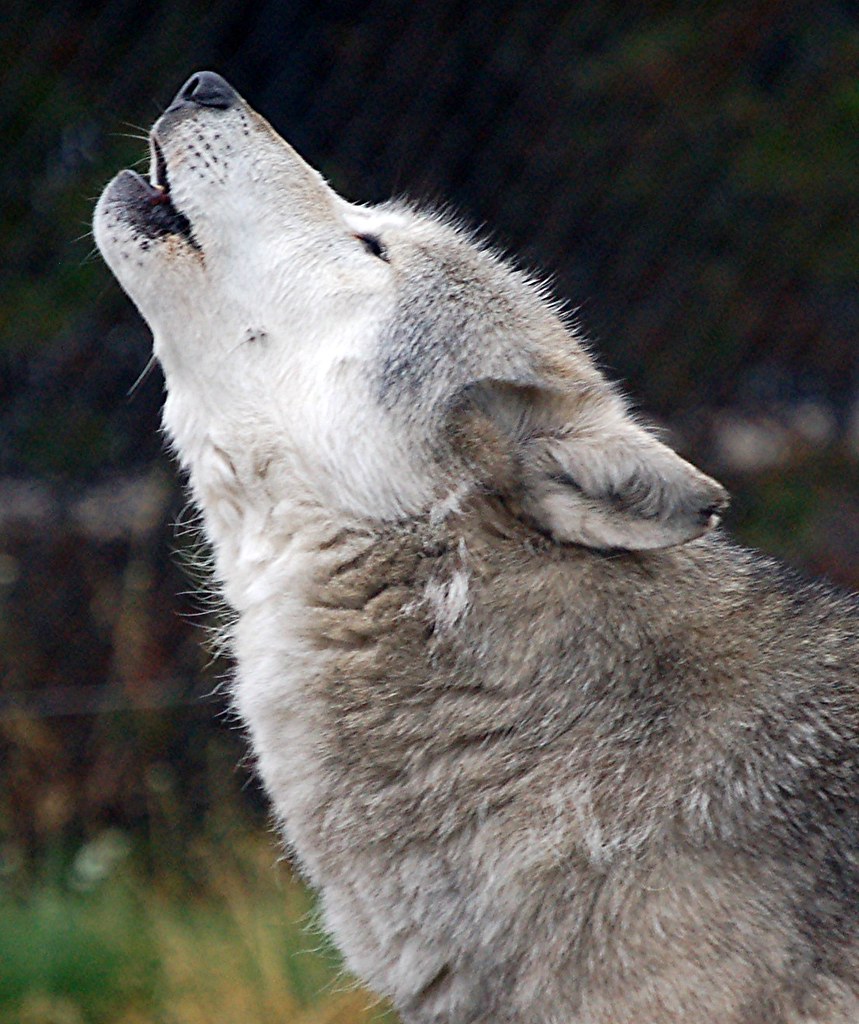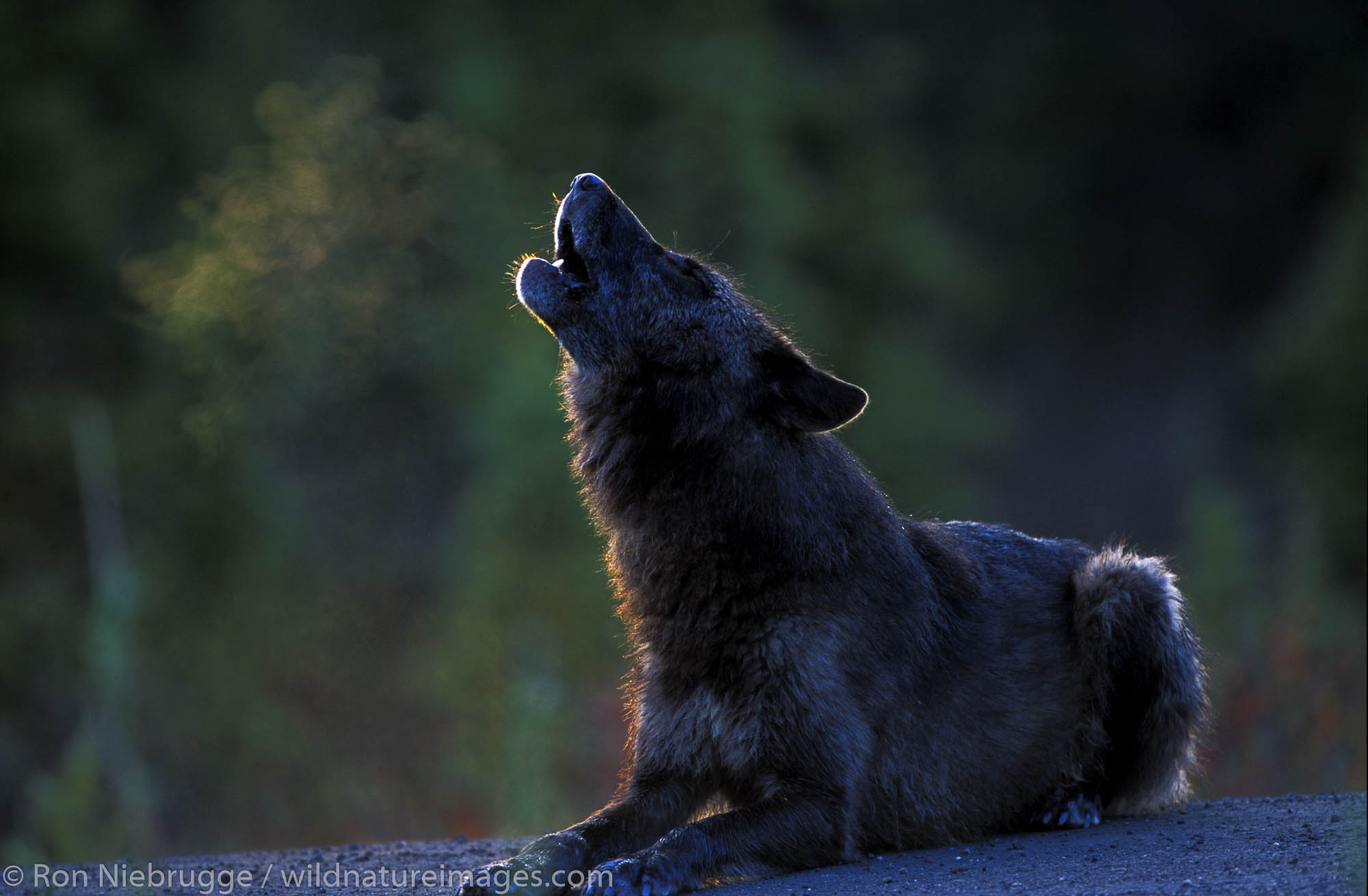The Wild Chorus - Understanding Wolf Howling
The sound of a wolf's call reaching out across open spaces, you know, it truly is one of nature's most amazing things to hear. It's a sound that can give you goosebumps, a deep, echoing sound that carries a long way. People have wondered about these sounds for ages, and there's a lot more to them than just a simple noise. So, these calls are a big part of how wolves connect with each other and their surroundings.
That incredible sound, the one that makes you feel the wild right in your chest, is a very important way wolves share information. It’s not just a random cry; it’s a form of talking that helps them live their lives in the big, wide wilderness. They use these long, sustained sounds, which are quite loud and, you know, can be heard over really long distances, often with a little bit of a change in how high or low the sound goes as it carries on.
When you hear a wolf call out, it’s like getting a peek into their secret conversations. We're going to look into why they make these sounds, what feelings might be behind them, and what those calls mean in different kinds of situations. We’ll also, you know, check out some of the studies and real-life examples of how wolves talk to one another and to the places they call home.
- Doxin Breeders
- Lee County Arrests
- Ramen Recall
- Green Lantern Cast
- %D8%B1%D8%AD%D9%8A%D9%84 %D8%B2%D9%88%D8%AC%D8%A9 %D9%8A%D8%B9%D9%82%D9%88%D8%A8
Table of Contents
- What Makes a Wolf's Howl So Special?
- Why Do Wolves Howl? Getting Their Messages Across
- Can We Hear Different Kinds of Wolf Howling?
- Are Wolves Really Howling at the Moon?
- What Happens When a Wolf Howls Close By?
What Makes a Wolf's Howl So Special?
It's pretty amazing, but it truly takes just one voice, at just the right pitch, to get something big going, like, you know, starting an avalanche. This idea of a single, powerful sound holds true for wolves, too. Their calls are not just any noise; they are a very important kind of animal talk, seen in most dog-like animals. This includes wolves, of course, but also coyotes, foxes, and even our regular dogs. You even see it in cats and some types of monkeys, which is sort of interesting.
These howls are, well, they are long sounds that keep going, very loud, and you can hear them over a good distance. They often have a little bit of a change in how high or low the sound is as it carries through the air. This change in pitch can carry different bits of information, like who is calling or where they are. So, you know, it's not just a shout; it's a message.
The Voice of the Wild - Wolf Howling as a Way to Talk
Wolves, with their really good hearing and loud howls, can talk to each other across vast stretches of land. This ability to make sounds that travel far is a big part of how they live in the wild. It helps them keep track of one another, share warnings, and organize their daily lives. You can hear these sounds, and they tell a story of connection and, you know, teamwork.
They use these calls for many different things, which we'll look at a bit more. It's really about them staying connected, making sure everyone knows what's going on. This kind of sound-making is, you know, something that has been around for a very long time in the animal world, helping creatures like wolves keep their groups together and safe.
Why Do Wolves Howl? Getting Their Messages Across
Wolves howl for some very good reasons. One big reason is to find each other, especially if a pack member has wandered off or needs to know where the others are. It's like a roll call in the wild, basically. Another reason is to mark their home ground. A group of wolves will call out to let other wolf groups know that this piece of land is already taken. It’s a way of saying, "This is our spot, keep out," without having to fight, which is pretty clever, actually.
They also howl when they are getting ready to hunt as a group. This helps them get everyone together and excited for the hunt, making sure they are all on the same page, so to speak. It helps them coordinate their actions, which is, you know, very important when trying to catch food. And sometimes, a wolf will howl to find a partner, sending out a call to attract a mate, which is a very important part of their life cycle.
These calls are really special, very strong, and full of feelings. They are signals that help wolves make it and do well in their wild homes. You can, you know, think of them as their way of making sure their family stays together and strong. They are truly vital for their way of life.
How Human Activities Change Wolf Howling
People's actions can, in some respects, change how wolves behave, including how and why they make their sounds. When human activities get closer to wolf areas, it can make wolves alter their usual patterns. For example, if there's a lot of noise from people or if their living spaces get cut up by roads, wolves might call out more often, or at different times, to try and keep their groups together.
Sometimes, too, they might become quieter if they feel threatened, choosing not to draw attention to themselves. It's a bit like how we might change our plans if something unexpected happens. So, the presence of people, you know, really does have an effect on these wild animals and their ways of talking.
Can We Hear Different Kinds of Wolf Howling?
You know, there are different reasons why wolves make these sounds. It's not just one type of howl. They might call out to tell others where they are, to keep other wolf groups away from their living space, or to find a partner, and more. Each kind of call might sound a little bit different, depending on what message they are trying to send. It's pretty neat how much they can say with just their voices, really.
You can even find out if wolves make sounds at the moon, which is a common story, and how things people do affect what wolves do. The way wolves make sounds, and how those sounds vary based on their group life and the places they live, is quite interesting to learn about. You can, you know, see and hear examples of different kinds of howls, and how wolves and people hear them.
The Story of Nikai and Dianna Hardyalawa's Wolf Howling
It’s often said that it takes just one howl, if it’s at the right pitch, to make really great things happen. Just wait for it! This idea comes to life when you think about specific wolves, like Nikai. There's also Dianna Hardyalawa, a Canadian/Rocky Mountain gray wolf, who was born on April 20, 2011, and lives at the Wolf Conservation Center. These specific animals help us see how truly special each wolf's voice can be.
Sometimes, you know, the recordings of these sounds aren't always in the very best quality, but even so, you can still get a good sense of the sounds they make. These recordings, even the slightly rough ones, give us a window into their world. They show us that a single wolf's call can be a very strong signal, full of meaning for its group and for others who might be listening, too.
Are Wolves Really Howling at the Moon?
Have you ever wondered why wolves make these sounds? It’s a fascinating way they use their voices to talk over long distances. The idea of wolves making sounds at the moon is a very old story, one that many people believe. But, you know, the truth is a little different. While they might make sounds when the moon is out, they don't do it because of the moon itself. It's more about what time of day it is, or what's going on around them.
The triggers for their calls can be many things: the time of day, the weather, other animal sounds, or just the need to find their group members. So, while a full moon might make for a pretty picture with a wolf calling out, the moon itself isn't the reason for the sound. It's just a coincidence that they're often more active at night, when the moon is visible, basically.
The Sounds of Wolves - Wolf Howling Compilations
What kind of sound does a wolf make? Well, let's listen to different wolf calls and other sounds they make. The sound a wolf makes is one of the most well-known animal sounds in the whole animal kingdom. From the kind of haunting sound a wolf makes to all the different ways they talk, these sounds have very clear purposes. You know, they aren't just random noises; they are messages.
You can truly get lost in the wild wonder of nature with some really great wolf call collections. You can witness the amazing sounds and things wolves do in their natural living spaces. Some recordings offer, like, eight hours of wolves calling out in the night, with the soft sound of wind moving through the trees. These deep, echoing calls create a feeling that is both peaceful and, you know, very wild.
What Happens When a Wolf Howls Close By?
Hearing a wolf make its sound is one of nature's most unbelievable sounds, but you might not know why they do it. This kind of sound is a fascinating way wolves use their voices to talk over long distances. On the morning of December 25, 2013, people living along Officer's Row woke up to a truly special present: wolves making their sounds just outside their doors. That must have been quite a thing to hear, basically.
This shows how close these wild animals can sometimes be to human places, and how their sounds can, you know, really make an impression. It's a powerful reminder of the wild world that sometimes exists right at our doorstep. These sounds are not just for finding pack members; they are also used to warn other wolf groups to stay away from their area, and for many other reasons, too.
Wolves as Key Creatures - Their Howling Role
Beyond being truly beautiful creatures, wolves are very important kinds of animals that help keep nature in balance. By controlling the numbers of other animals they eat, wolves allow many other kinds of plants and animals to do well. This is a very important job in the natural world, as it helps keep everything working smoothly, you know, in a sort of chain reaction.
Their sounds, which help them hunt and keep their groups together, play a part in this big picture. The fact that they can communicate so effectively helps them carry out their role in the environment. So, when you hear a wolf make its sound, you're not just hearing a wild animal; you're hearing a key part of the natural world, doing its job to keep things in good order, more or less.

Wolves Howling Wallpaper (68+ images)

Howling Wolf | Close-up of wolf howling | Jean | Flickr

Howling wolf at sunrise | Denali National Park, Alaska. | Photos by Ron